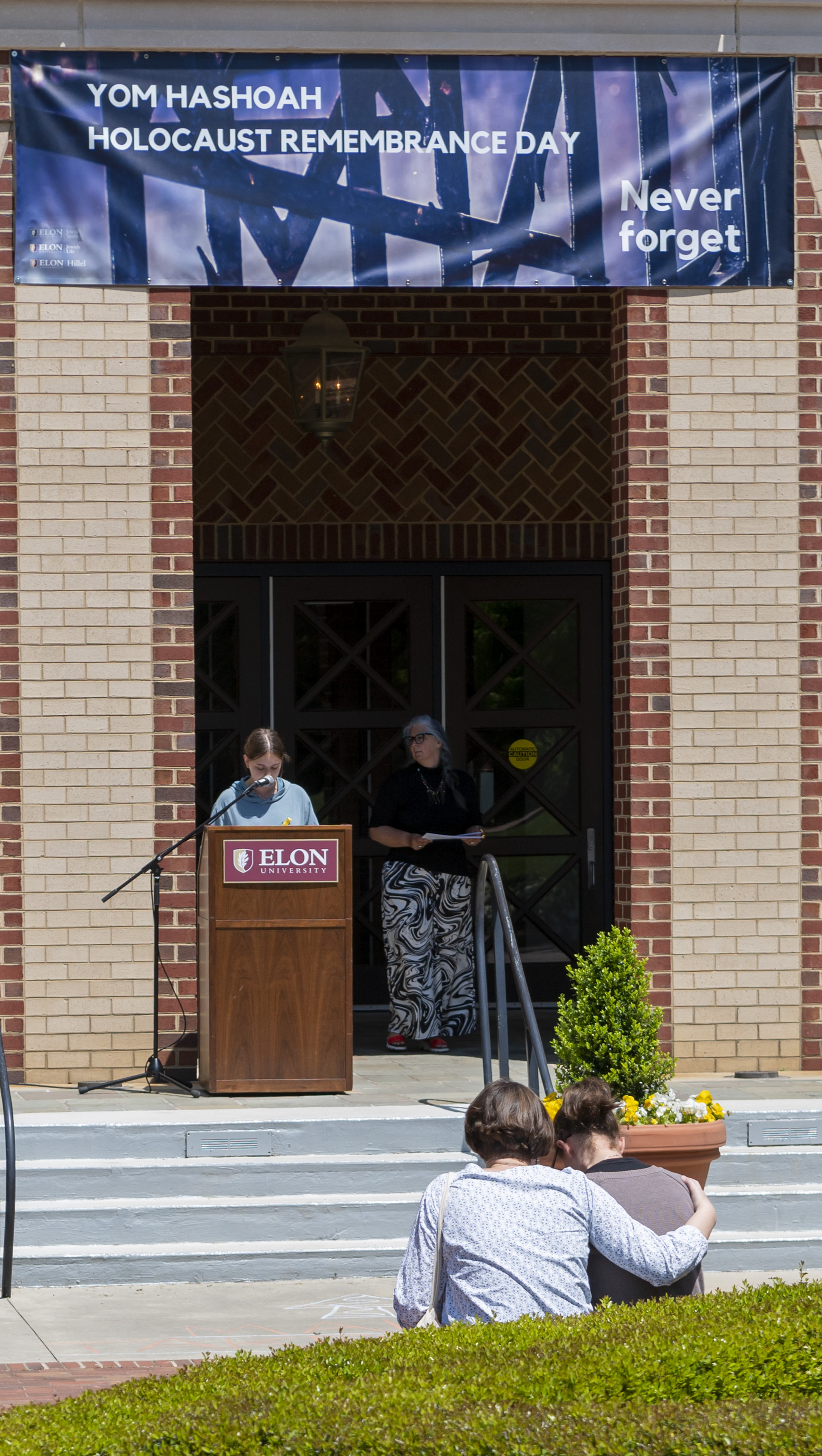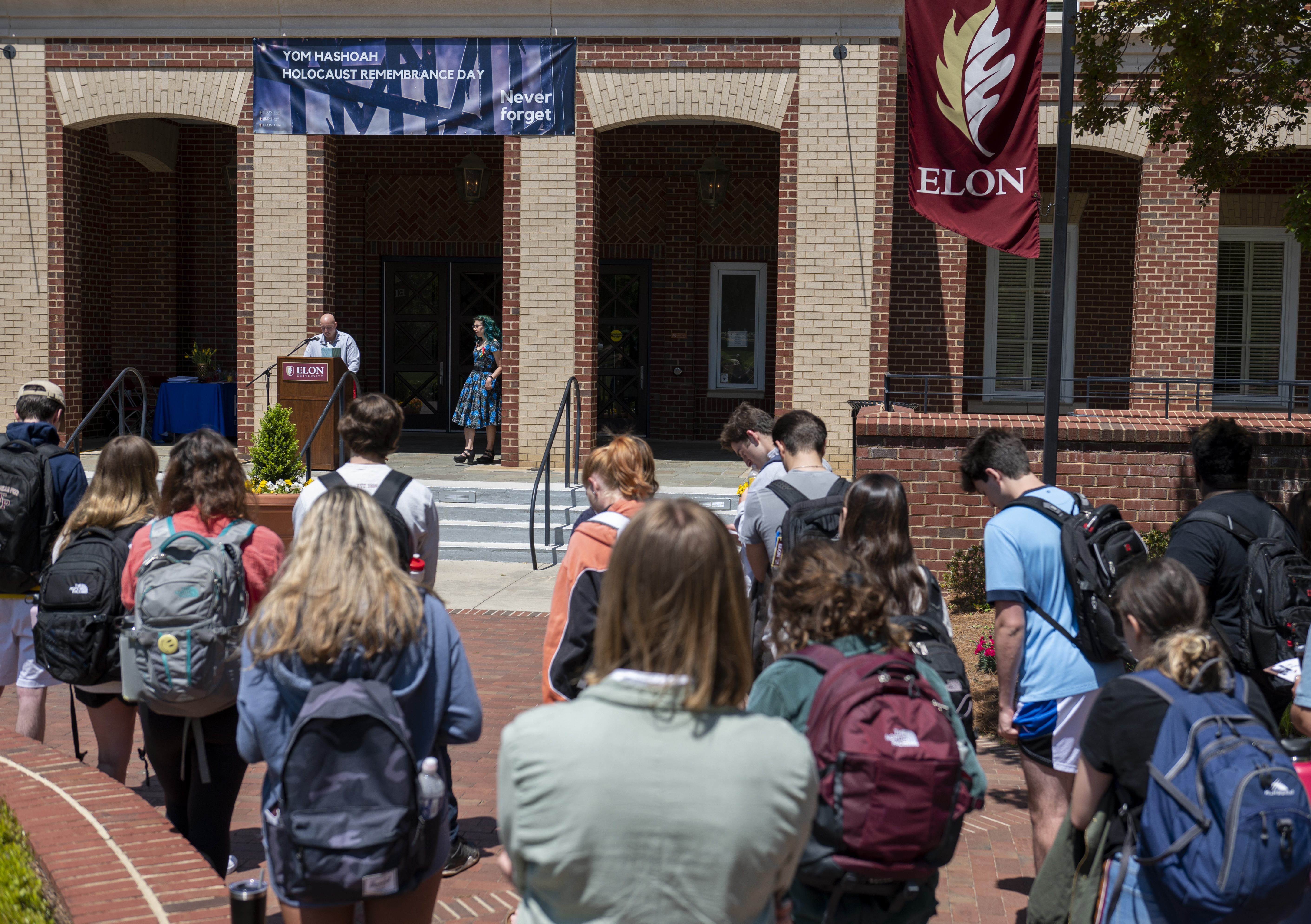The Elon community remembered the millions of people who perished during the Holocaust through a series of events to commemorate Yom HaShoah.
On the steps of the Moseley Center at the center of campus life, hundreds of names of Holocaust victims were read by members of the Elon community during the annual Yom HaShoah commemoration organized by Jewish Life and Jewish Studies.
Samantha Katz ’24, one of the readers and a student board member of Chabad at Elon, said the reading of the names was a powerful experience that she feels honored to have participated in.
“Hopefully, I did them justice. Saying those names keeps the memory alive and also helps other people learn,” Katz said.

Yom HaShoah, or “Day of Remembrance of the Holocaust and Heroism,” was held on Thursday, April 28, with students, faculty and staff volunteering for a Reading of the Names ceremony to honor some of the six million Jews, and millions more, who perished during the Holocaust.
Earlier in the day at the weekly Numen Lumen event, there was a Ceremony of Remembrance: Women of Valor. Designed by Jewish educator Boaz Avraham-Katz and Associate Professor of History Andrea Sinn, the ceremony combined readings, dance, music and personal reflections to honor the women of the Holocaust.
“Bringing this commemoration to the campus community is crucial … because of rising antisemitism around the country and the world today,” said Hillary Zaken, assistant director of Jewish life at Elon.
The Reading of the Names ceremony featured different colored ribbons to symbolize the various communities and identity groups that were targeted by Nazi Germany during World War II and sent to concentration camps. The ribbons also represented the marking system created for those in concentration camps, as different groups had different identifiers sewn into their prison uniforms.
Flyers with the biographies of Holocaust victims were also handed out at the ceremony. Printed on the back of each flyer story was the poem, “Each of Us Has a Name” written by Zelda.
As time passes, more people who lived through the Holocaust are passing away and more people are coming to deny it even happened. Organizers hope ceremonies like the Yom HaShoah commemoration on Elon’s campus thwart such denial about one of the largest genocides in human history.
“There are many people who know almost nothing about the Holocaust, or even deny its existence,” Zaken said “The more we talk about what happened, the more we’re aware of it. You can learn about history, but if you tell the story of a person, and you share their words, and you invite people to stop and listen to the story of a life that could have been like theirs, maybe they’ll understand the enormity of what happened during the Shoah.”
Vice President of Religious Education for Hillel Lani Lefkowitz ’23 said that with the “dystopian and unthinkable” actions of the Holocaust, remembering is one way to ensure it doesn’t occur again.
“Every time I do reading events or just review Holocaust stories, it reminds me that there’s a life behind the people that we hear about it the Holocaust. By remembering each of them as a person, it helps me to ground myself and feel the realism of what the Holocaust was,” Lefkowitz said.
“By reading up the names, it helps to remember those people and show that they were individuals not just part of a story that we may all know,” she added.



